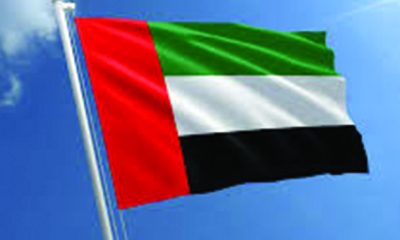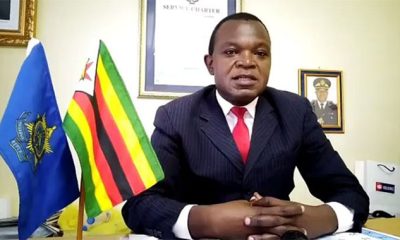Fungi Kwaramba in MURAMBINDA
FOR exactly 41 years, no major event was held outside Harare, the citadel of both political and economic power in Zimbabwe, but for the past two years and counting, that has changed with the independence celebrations being rolled out to other provinces, in line with President Mnangagwa’s mantra of decentralisation, which is aimed at “leaving no one and no place behind”.
Already, Bulawayo and Mashonaland Central provinces have had their turn of hosting the main independence celebrations.
Bulawayo hosted the 42nd independence celebrations, while Mt Darwin in Mashonaland Central, the bedrock of the country’s liberation struggle, hosted the event last year.
This year is Manicaland Province’s turn, and over 70 000 people are expected to converge at Murambinda B High School in Buhera today for the country’s 44th Independence celebrations.
Speaking about decentralising the main Independence Day celebrations in 2022, President Mnangagwa said: “Recently, Cabinet resolved that this year’s 42nd Independence Day celebrations will be held in Bulawayo.
“This landmark event will be the first to be held outside Harare since independence, which is testimony that Zanu PF is walking the talk with regards to devolution and the realisation of development that leaves no one and no place behind.”
This year, Independence Day celebrations are being held under the theme, “Zim@44: Unity, Peace and Development Towards Vision 2030”.
Murambinda town and the province of Manicaland at large hold a special place in the country’s history, a history inked by blood, a history that culminated in Uhuru on April 18, 1980.
A brief history perhaps: At the tail-end of the country’s liberation struggle, when the embers of the gruelling war were dying after the defeat of the minority settler colonial regime, thousands of freedom fighters were assembled at Dzapasi/Foxtrot, here in Buhera, waiting for elections that ushered in majority rule.
The place, heavy with the weight of history, remained tucked in the semi-arid lands with little to speak to the world of the stories it carried in its bosom, its bowels, hills and valleys.
But that all took a turn with the advent of the Second Republic, which sought and still seeks to indelibly engrave the country’s history, written in blood, to endure until the end of time so that the heroic deeds of its heroes permeate for generations to come, as a fountain of inspiration and source of pride.
In his address to schoolchildren at the Children’s Party here yesterday, President Mnangagwa, himself a major protagonist in the country’s protracted war of independence, said the country must always unite, in its diversity for development that leaves no one and no place behind, because the liberation struggle was shouldered by all regions with scant regard to anyone’s ethnicity or background.
“We should embrace the values of our liberation, by always respecting and loving one another. Your language, culture, and traditions might be different but you are all Zimbabweans.
“You are great, great-grandchildren of Munhumutapa, we are a united people. We fought for our independence and freedom from colonial rule, now we are a free people. You, our children, must always be proud of being Zimbabwean, our rich history and national identity.”
It is for that reason that the country is today celebrating its 44th Independence in Murambinda, a bustling town in the heart of Buhera, that is nestled between picturesque mountains and which, like many parts of Zimbabwe, had never hosted a major national event of this magnitude.
In its journey to Murambinda Growth Point, the Independence Flame that will be torched today, ever a symbol of the country’s self rule and sovereignty, was taken to Mutasa’s Magamba (Butcher Camp) in Rusape, then Nyanga, Mutasa (Matumba Six Shrine), Mutare Provincial Heroes Acre, Chimanimani, Chipinge and Foxtrot.
Speaking after torching the Independence Flame last week, Vice President Dr Constantino Chiwenga said the Butcher site alongside similar sites like Chibondo were torture chambers used by a desperate white minority government that sought to delay the inevitable, the rule by the majority.
This was part of a larger strategy of Rhodesia’s stubborn response to the black people’s demand for independence and freedom.
Speaking of the Magamba site, VP Chiwenga said it was one of the many sacred sites in the country where freedom fighters are interred.
He said the shrine, often referred to as “Butcher Site”, was a secretive interrogation, torture, and execution base for the colonial regime during the late phase of the Second Chimurenga.
“It is here where the lives of hundreds of liberation fighters, war collaborators and civilians came to a brutal end through the atrocious Rhodesian regime tactics . . . nothing else could demonstrate the deep respect for our departed heroes than to immortalise and memorialise our heroes for generations to come,” said VP Chiwenga.
Because the country’s independence was fought in all regions, by brave and committed sons and daughters from across the country, this year’s Independence Day celebrations are being held in Murambinda.
This town was buzzing last night, with at least 70 000 people expected to witness the main event that will be accompanied by a rare football extravaganza pitting Zimbabwean soccer giants, Highlanders and Dynamos, at a pristine stadium built at Murambinda B Secondary School.
Reaping rewards from the celebrations, Murambinda B Secondary school now boasts of a solar-powered borehole, a drip technology garden, and a fishery, in a project that will be mirrored at every school in the country.


 Business5 months ago
Business5 months ago
 travel3 weeks ago
travel3 weeks ago
 music3 weeks ago
music3 weeks ago
 money markets2 weeks ago
money markets2 weeks ago
 gospel2 weeks ago
gospel2 weeks ago
 gospel2 weeks ago
gospel2 weeks ago
 gospel2 weeks ago
gospel2 weeks ago







You must be logged in to post a comment Login